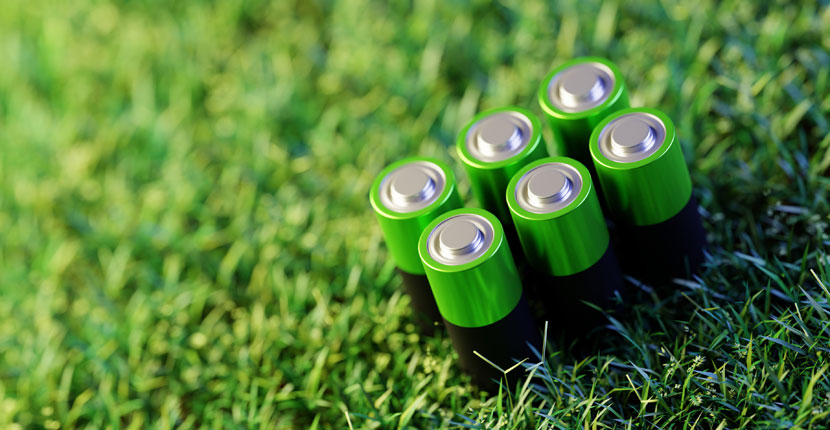Are Rechargeable Batteries Eco-Friendly?
- by Bryan Veldboom - updated on 2/1/2023

Rechargeable batteries have many advantages. Not only can they be used in many of the same applications as alkaline batteries, they can also be charged hundreds of times. That's certainly good news for your wallet, but what about for the environment? Are rechargeable batteries actually better for the environment?
What is the Carbon Footprint of a Disposable Battery?
Alkaline batteries are created using materials that have to be mined. This gives them a sizable carbon footprint . Mining equipment such as drills and hydraulic shovels require a large amount of electricity. After these materials have been extracted, the ores are smelted in large furnaces that are typically powered by coal. During the automated production phase, even more electricity is used in assembling the refined materials into batteries. Finally, there is a significant amount of fuel spent in transporting the finished batteries to different parts of the world.
Why are Rechargeable Batteries Eco-Friendly?
Rechargeable batteries are better for the environment because they can be used hundreds of times before they need to be replaced. A longer-lasting battery means less new batteries need to be manufactured, which reduces the carbon footprint mentioned above. Using rechargeable batteries also helps to reduce the number of disposable batteries that end up in landfills.
Does It Matter What Charger I Use for Rechargeable Batteries?
When selecting a battery charger, you need to be sure that it matches the size and chemistry of your battery type. For instance, if you're looking to charge a AA nickel metal hydride (NiMH) battery, you need a charger that is compatible with NiMH batteries in a AA size. Here are some battery chargers available at Batteries Plus:
PowerEx Battery Smart Charger - charges AA, AAA, C or D size nickel metal hydride (NiMH) or nickel cadmium (NiCD) batteries
Energizer Nickel Metal Hydride Universal Battery Charger - charges AA, AAA, C, D & 9V size NiMH batteries
X2Power Nickel Metal Hydride 8 Station Charger - charges AA & AAA NiMH batteries
What Do You Do with Dead Rechargeable Batteries?
Rechargeable batteries last much longer than alkaline batteries, but eventually, they too will need to be replaced. When your rechargeable batteries need to be replaced, bring them to your nearest Batteries Plus to be recycled. Visit our Recycling Page for more information regarding the types of batteries and light bulbs we recycle. While you're there, why not pick up a replacement set of rechargeable batteries?
Because of differences in state and local regulations, there is some variation in the type of recyclables each store can accept. There may be a cost for recycling, but this will also vary by location. If you have questions, reach out to your nearest Batteries Plus location directly.
Other Eco-Friendly Solutions at Batteries Plus
Want to learn more about this topic? Read our blog articles entitled "When Can I Use Rechargeable Batteries Instead of Alkaline?" and "Why Is It Important to Recycle Batteries?" Looking for other ways you can help the environment? Learn how Batteries Plus can help you backup your home with Goal Zero solar generators.